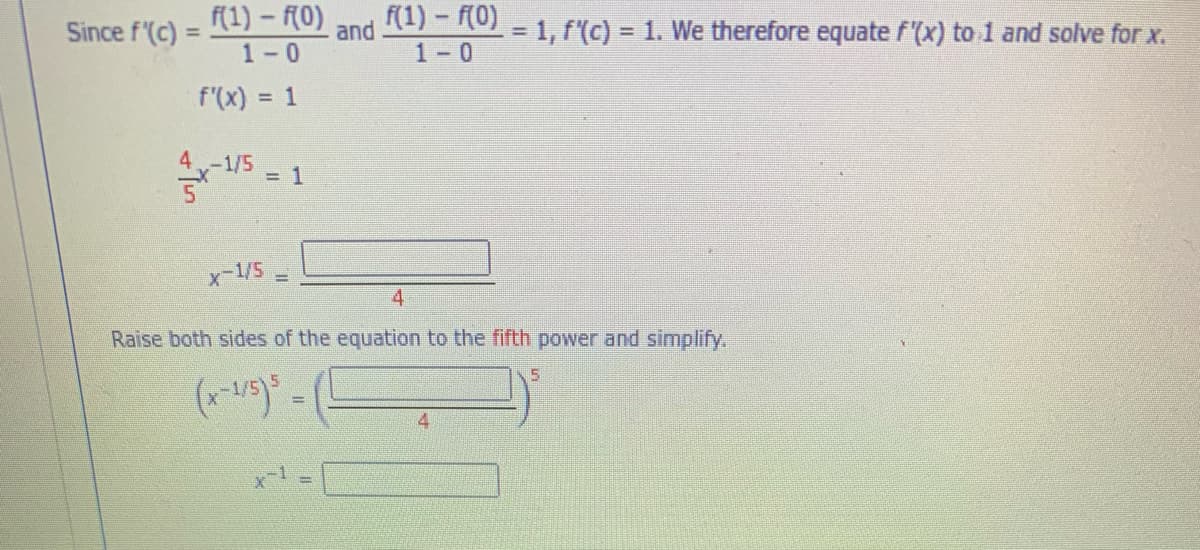Since f'(c) f(1) – (0) f(1) – f(0) = 1, f(c) = 1. We therefore equate f'(x) to 1 and solve for x. and %3! %3D 1-0 1-0 f'(x) = 1 4-1/5 = 1 x-1/5 4. Raise both sides of the equation to the fifth power and simplify. 15.
Since f'(c) f(1) – (0) f(1) – f(0) = 1, f(c) = 1. We therefore equate f'(x) to 1 and solve for x. and %3! %3D 1-0 1-0 f'(x) = 1 4-1/5 = 1 x-1/5 4. Raise both sides of the equation to the fifth power and simplify. 15.
Functions and Change: A Modeling Approach to College Algebra (MindTap Course List)
6th Edition
ISBN:9781337111348
Author:Bruce Crauder, Benny Evans, Alan Noell
Publisher:Bruce Crauder, Benny Evans, Alan Noell
Chapter2: Graphical And Tabular Analysis
Section2.1: Tables And Trends
Problem 1TU: If a coffee filter is dropped, its velocity after t seconds is given by v(t)=4(10.0003t) feet per...
Related questions
Question
Please solve this problem, all steps, thank you!!!

Transcribed Image Text:Since f'(c)
f(1) – (0)
(1) - f(0)
= 1, f(c)
= 1. We therefore equate f'(x) to 1 and solve for x.
and
%3D
%3D
1-0
1-0
f'(x) = 1
4-1/5
= 1
x-1/5
4.
Raise both sides of the equation to the fifth power and simplify.
Expert Solution
This question has been solved!
Explore an expertly crafted, step-by-step solution for a thorough understanding of key concepts.
Step by step
Solved in 2 steps with 2 images

Recommended textbooks for you

Functions and Change: A Modeling Approach to Coll…
Algebra
ISBN:
9781337111348
Author:
Bruce Crauder, Benny Evans, Alan Noell
Publisher:
Cengage Learning

Functions and Change: A Modeling Approach to Coll…
Algebra
ISBN:
9781337111348
Author:
Bruce Crauder, Benny Evans, Alan Noell
Publisher:
Cengage Learning